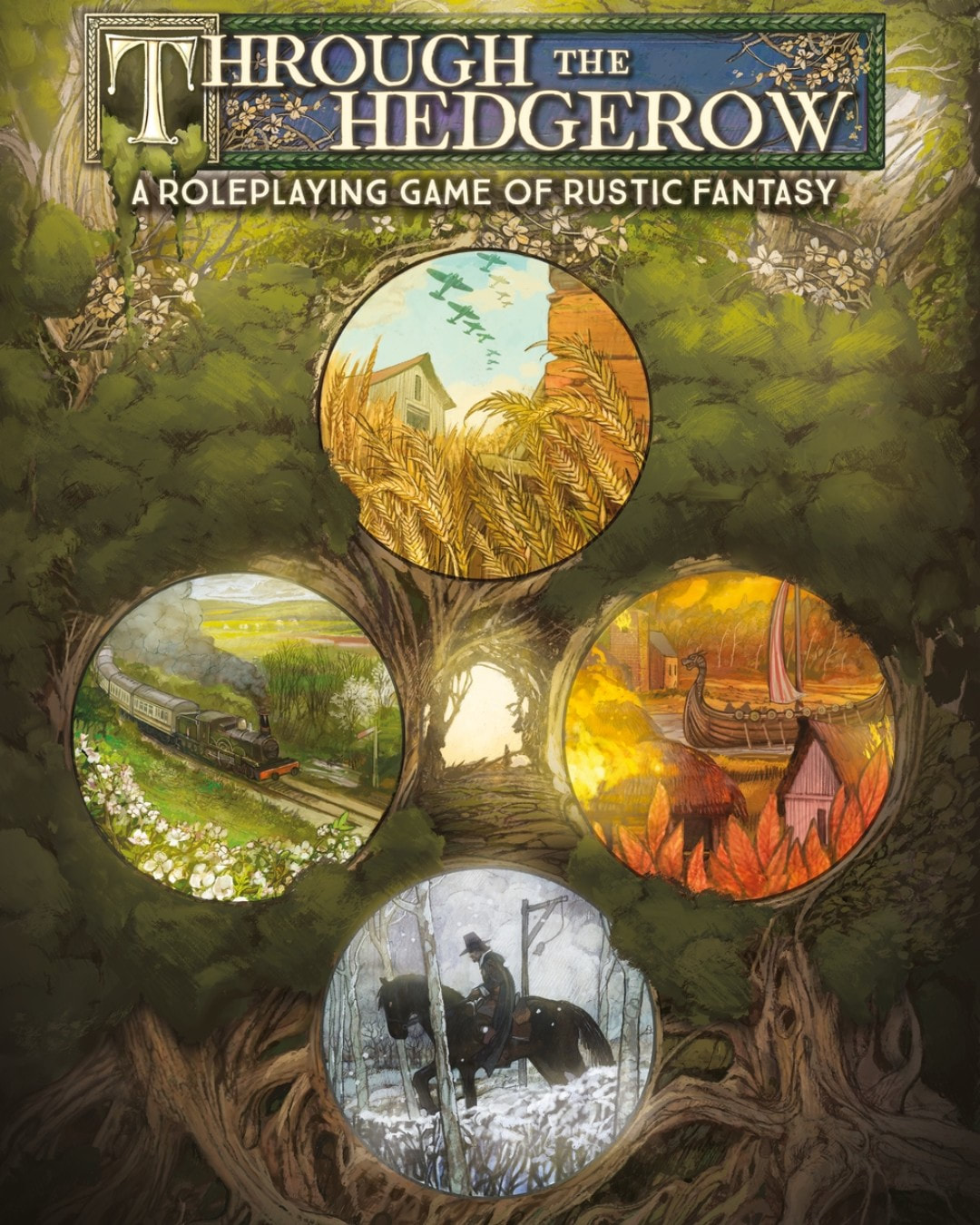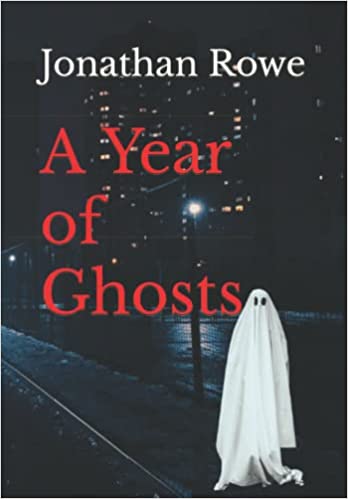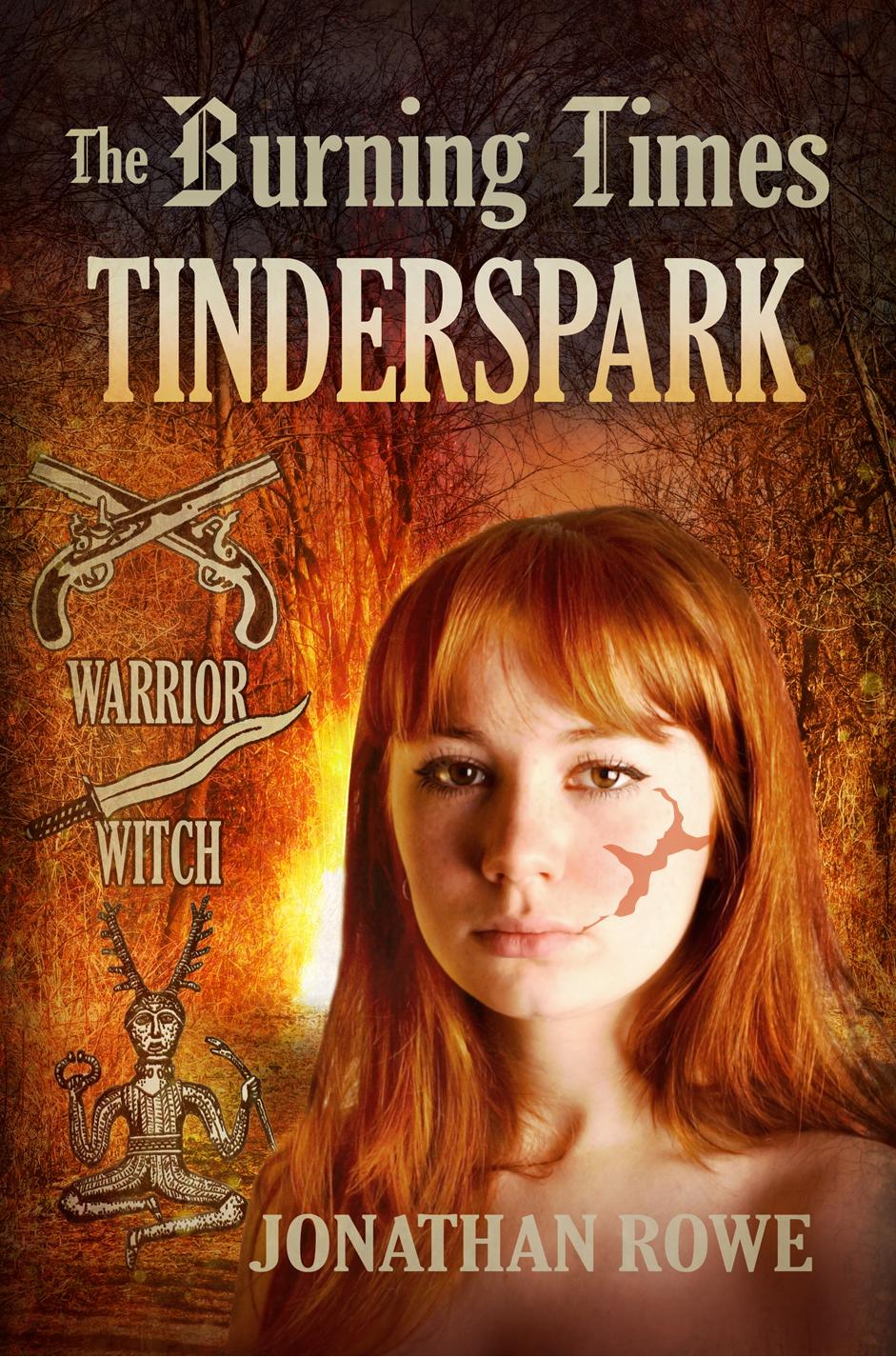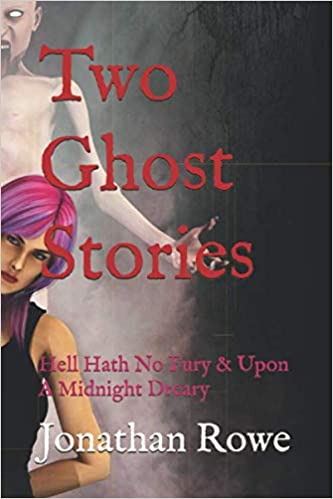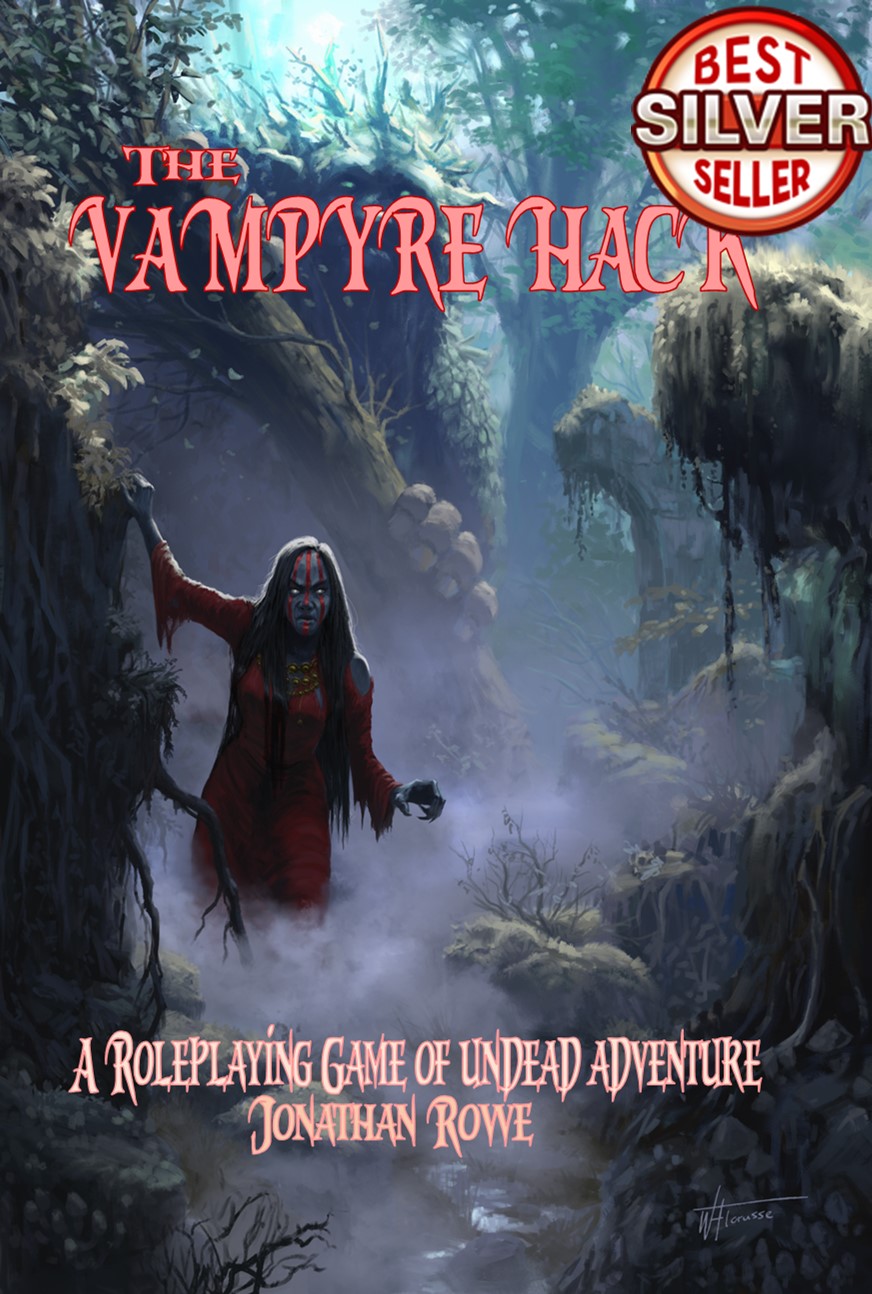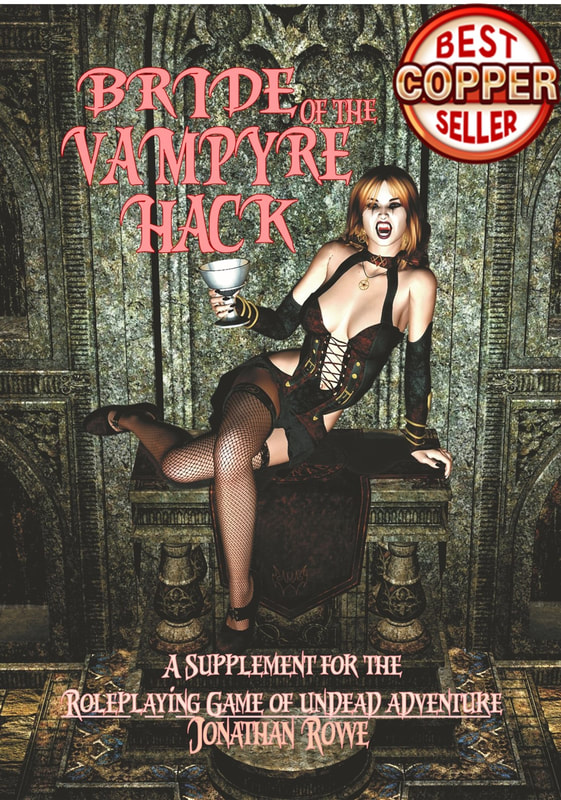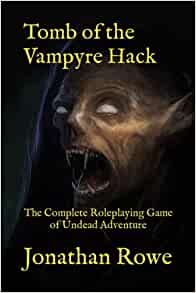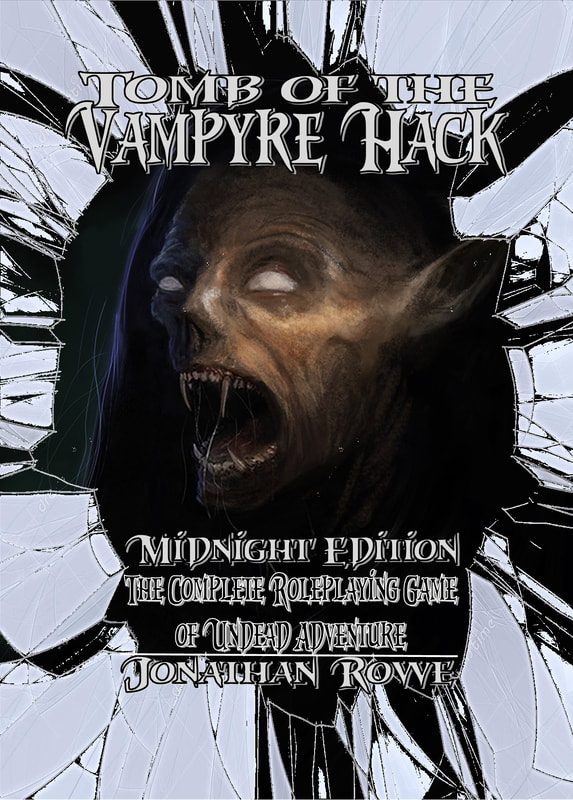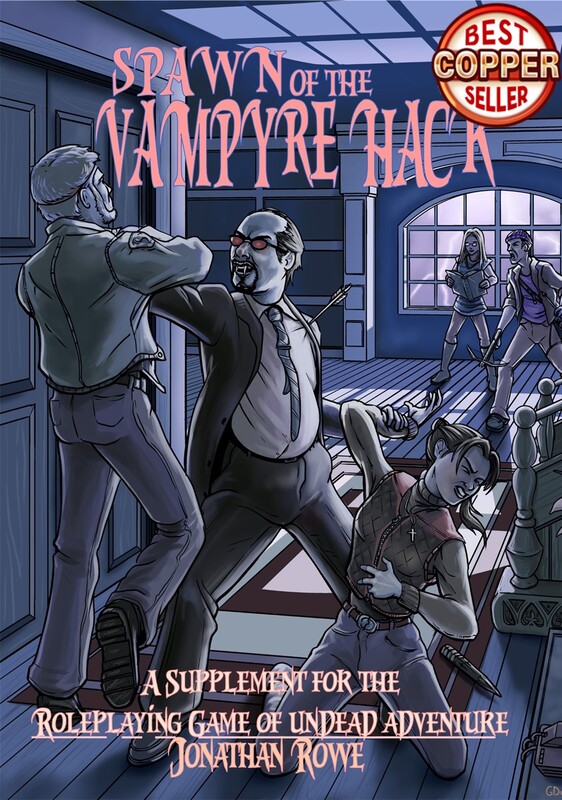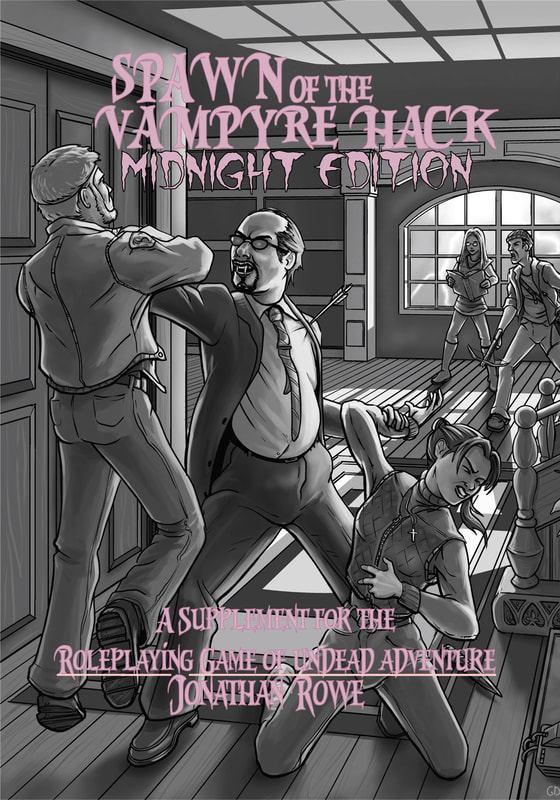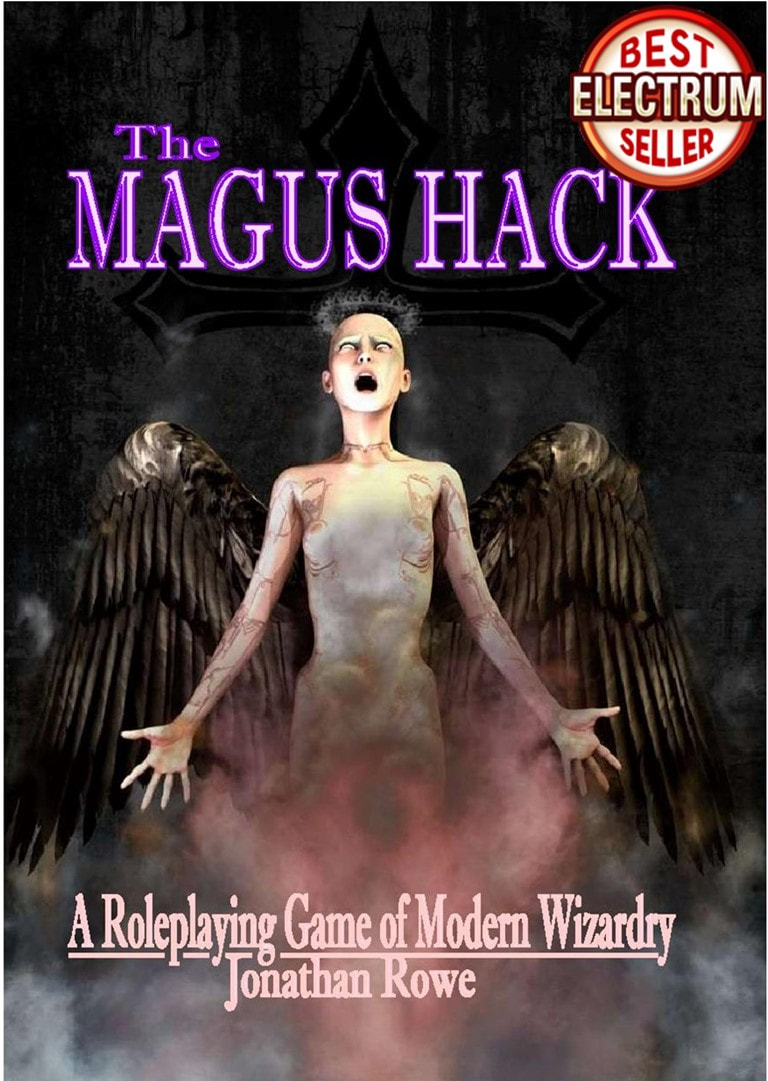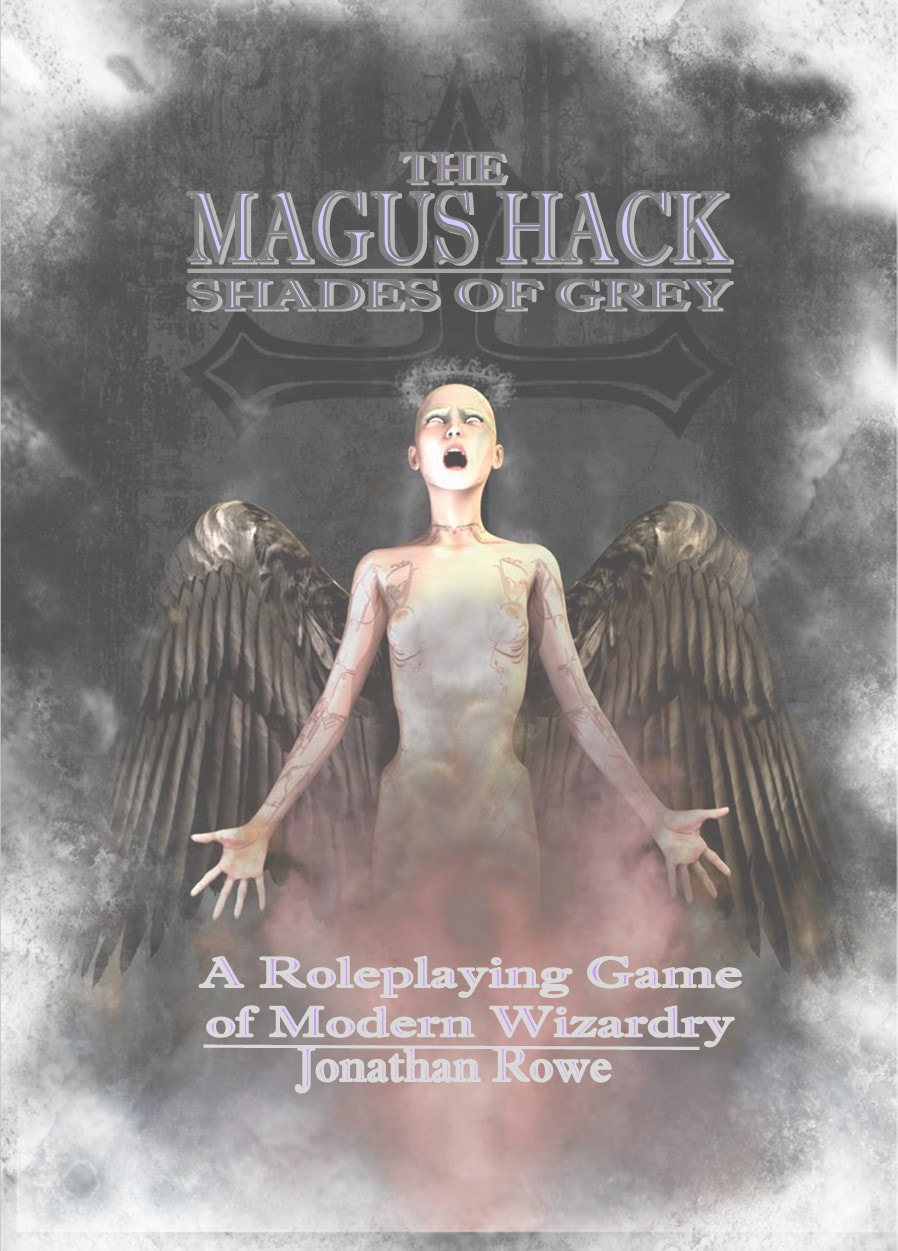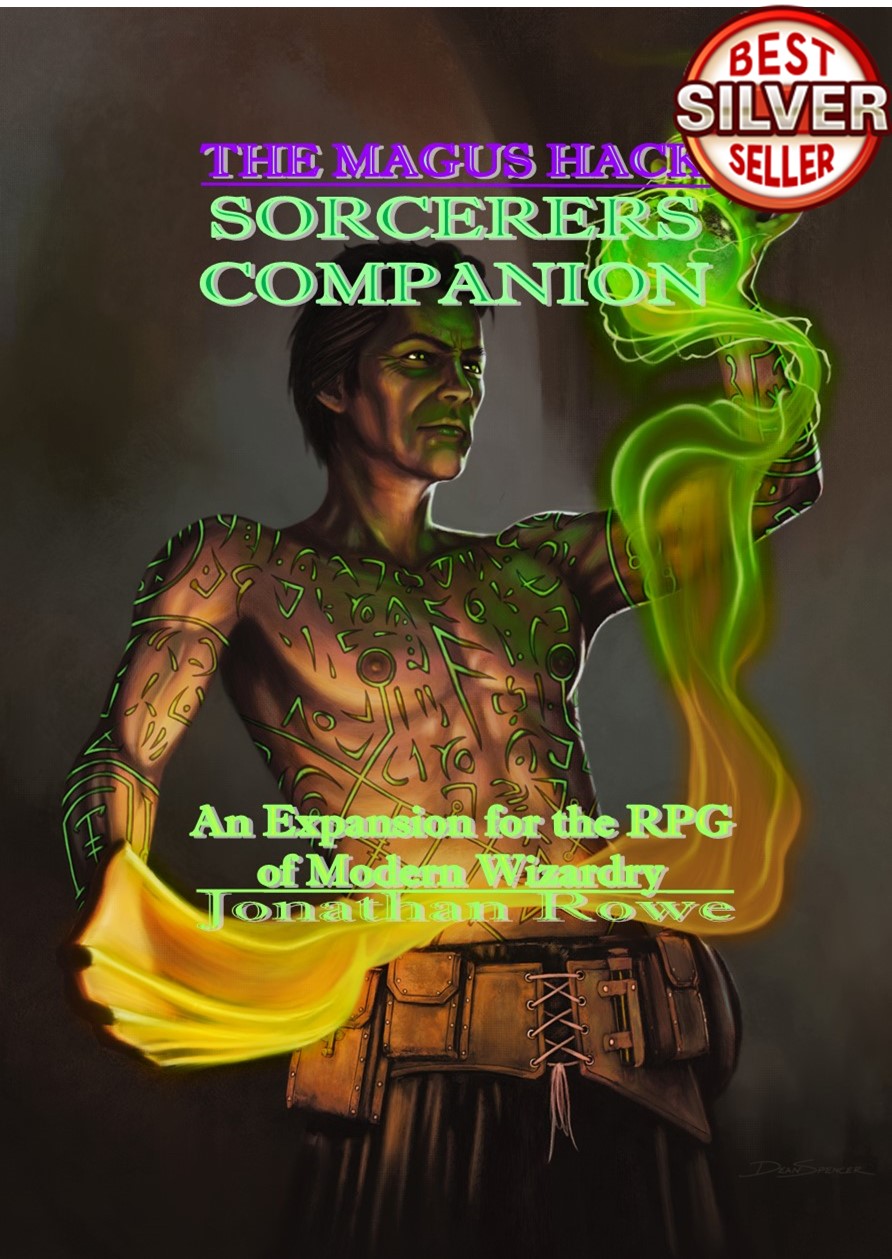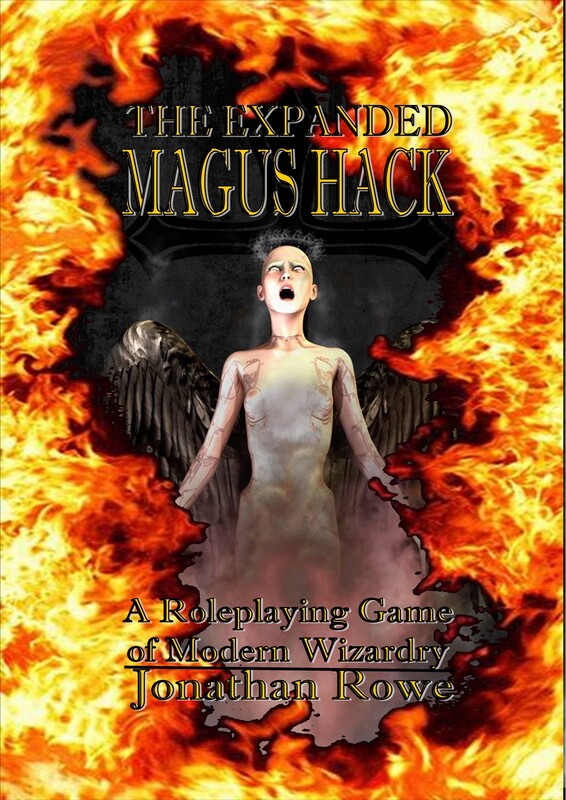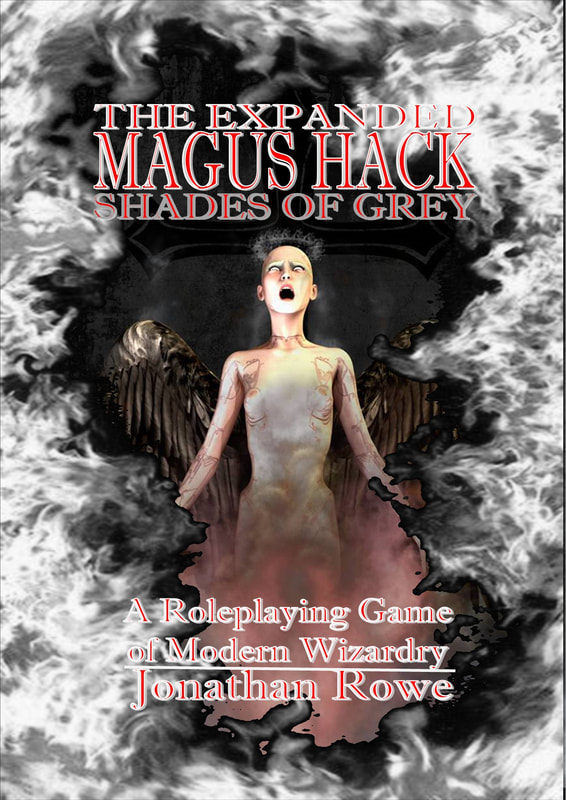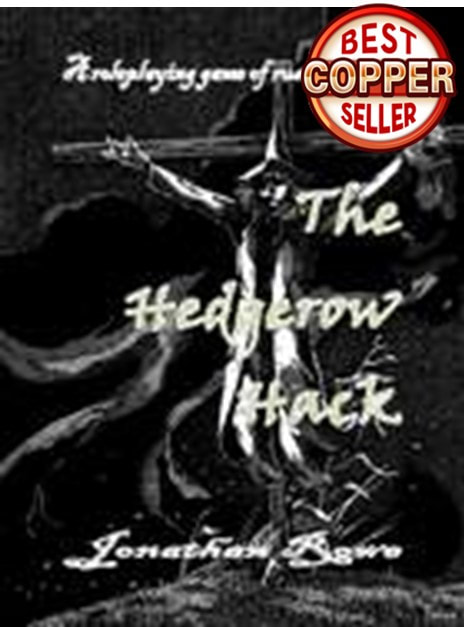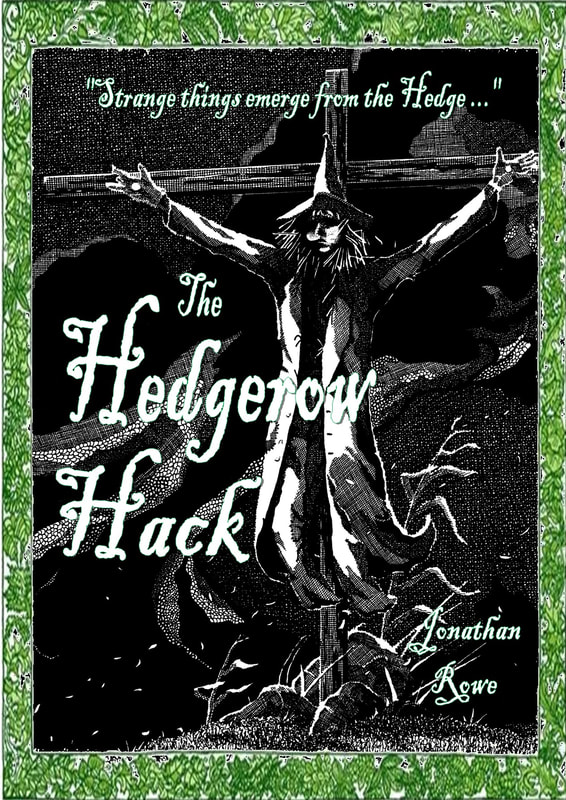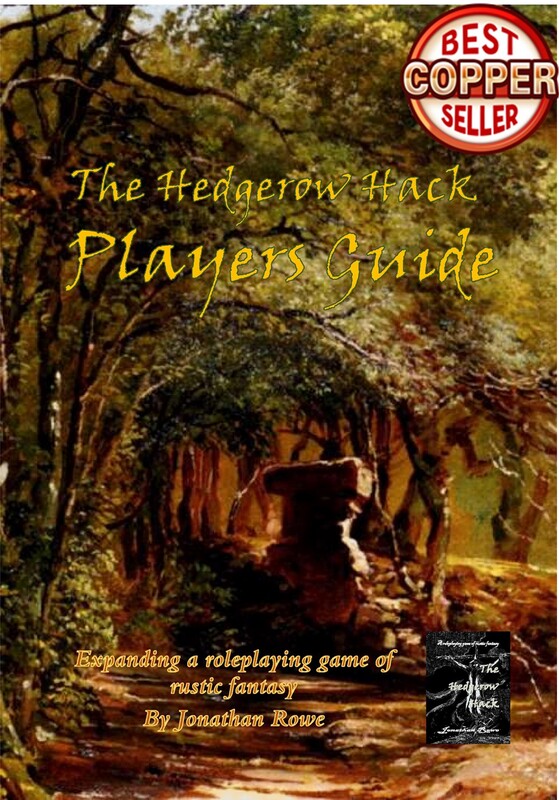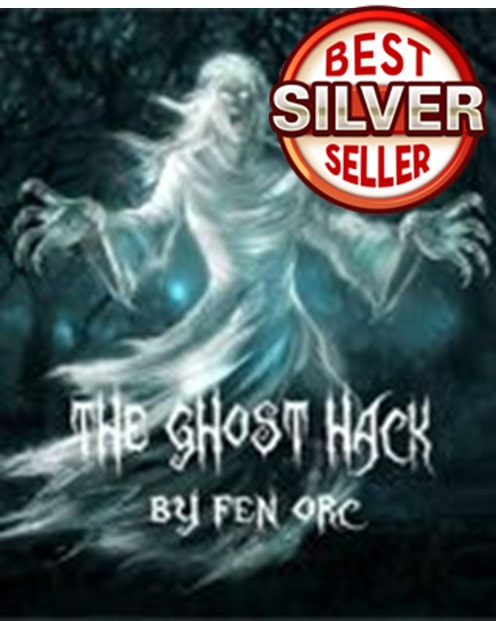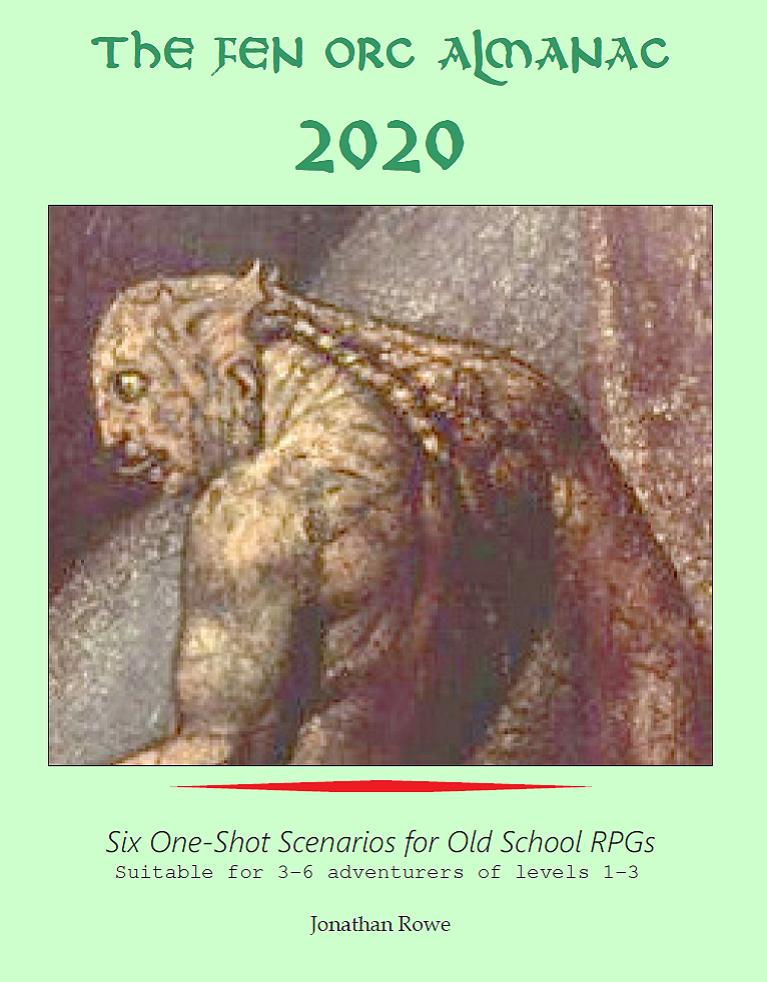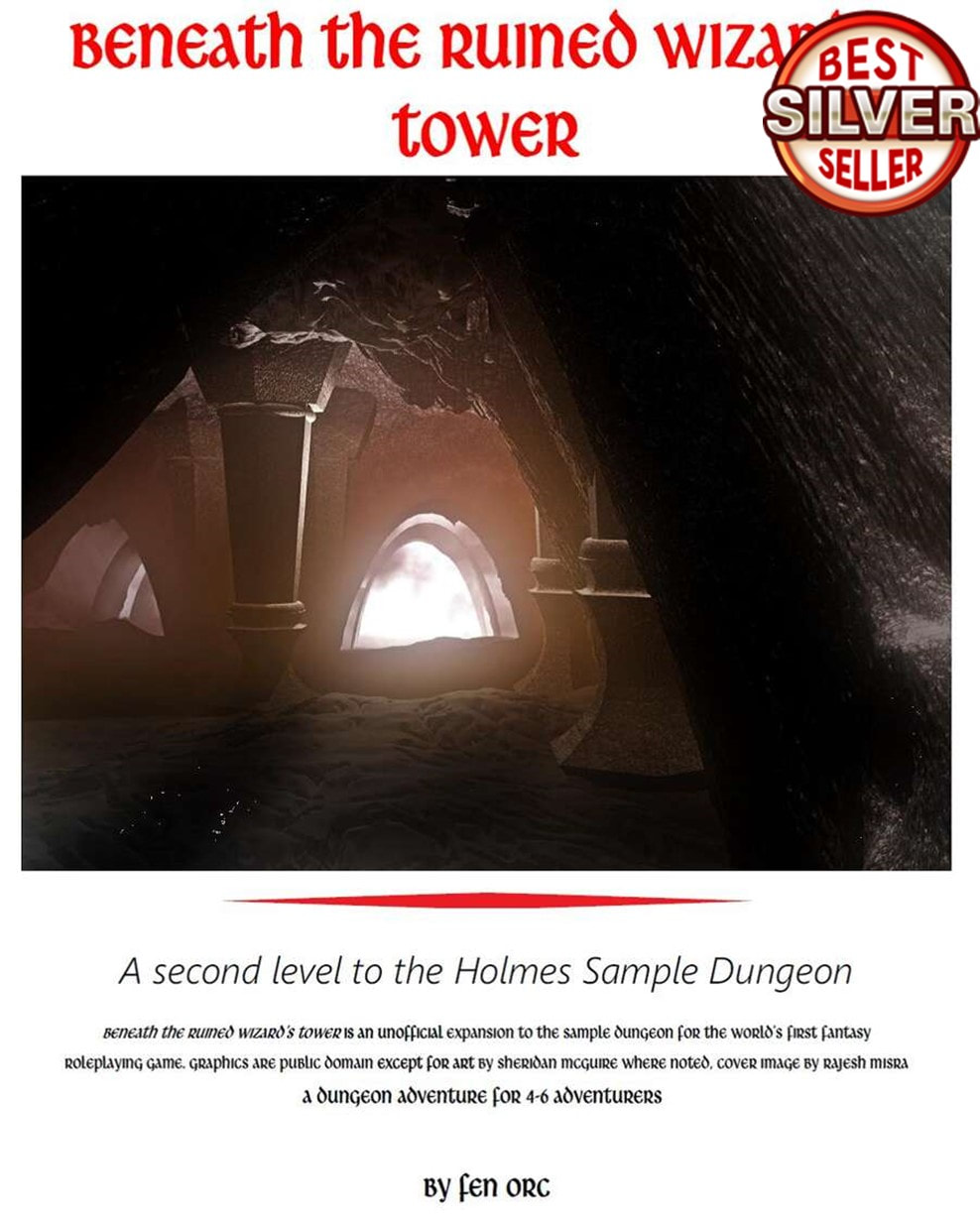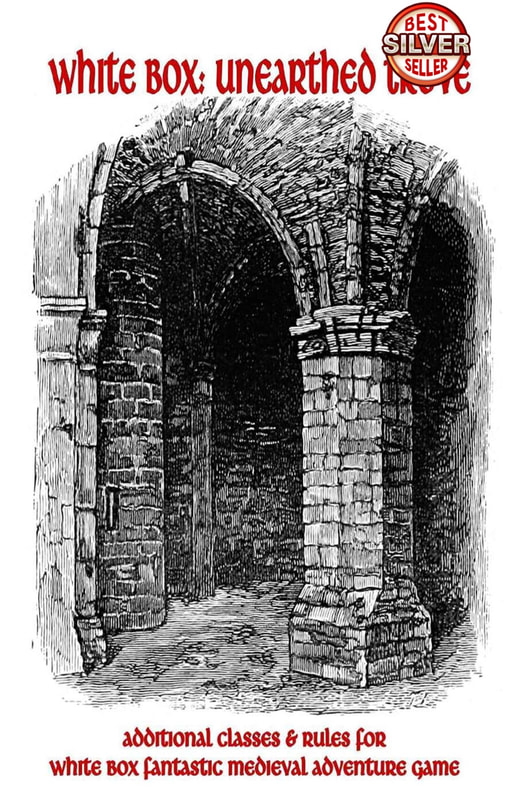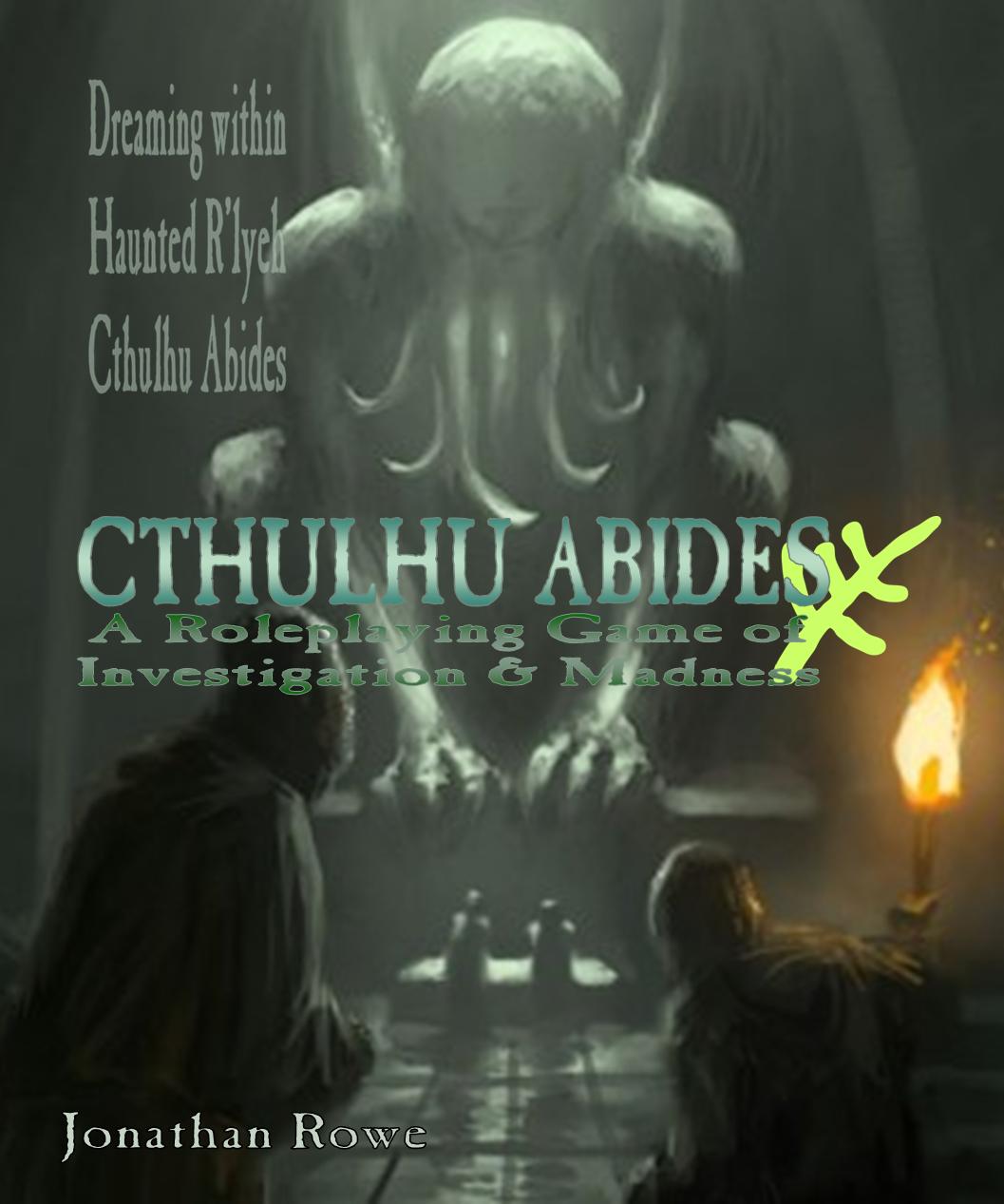|
Since the last blog, I've been working on Psionics rules for White Box that are faithful to the spirit of 1976's Eldritch Wizardry while avoiding the flaws of Tim Kask's system: fiddly point counting, multiple tables to consult, over-powered psionicists, lack of rationale, dependency on Psionic Monsters as a balancing threat. And of course HA-HA. One of the ironies of games design is that your own systems always seem simple and un-fiddly to you. Everyone else sees them for the convoluted mare's nest that they are. Doubtless someone will point out to me that all this is just as complicated as Tim Kask's original rules! Psionic Potential Szymon Piecha's Expanded Lore supplement introduces an excellent system of Feats into White Box, with characters gaining a new Feat at every odd-numbered level (and Humans starting with a Feat at 1st level). Psionic Potential is a new General Feat that any character can choose instead of the normal Feats available. This marks the awakening of the character's Psionic powers. What about Elves etc.? The original rules in Eldritch Wizardry limited Psionics to humans and Gary Gygax's revision in 1st ed. AD&D excluded Elves. Personally, I see no reason to exclude any race (or class) from Psionics, but you might have a campaign setting that limits Psionics to certain groups. Psionic Potential gives the character access to one Psionic attack mode and one defense mode:
And that's it! A newly-awakened psionicist gets some protection from Psionic foes and can call on a Psionic Blast to incapacitate enemies (but at a cost, as well shall see). All the exciting Psionic Disciplines and Talents are still in the future. Monks and Fighters (optional) Monks enjoy a starting ability at first level to meditate for an hour, ridding their body of poisons and healing 1d6 HP. Optionally, a Monk character may forego this ability and take Psionic Potential as a class ability instead. A Human Monk may then take another Psionic Feat (see below) at first level instead of a normal Feat. Another option is for Fighters to choose a Psionic sub-class. Expanded Lore offers 8 sub-classes for Fighter PCs to choose at character creation. An extra sub-class could be a Psi-Blade who automatically has Psionic Potential at 1st level. Psionic Feats Whenever a psionicist would be eligible for a new Feat, they may choose a Psionic Feat from this list.
The Stress Die When you use a Psionic Talent, you gain a point of Psionic Stress and roll the Stress Die (usually a d6). If you roll equal to or higher than your current Psionic Stress, all is well. If you roll less than your current Psionic Stress, you have lost control of your Psionic powers and a consequence will follow, which might be:
This makes using Psionic powers a sort of 'push-your-luck' experience. Sooner or later you will fail the Stress Test and either lose your powers (exhaustion) or incur something horrible. Players who are wise will call upon Psionics only under duress. As discussed later, using Psionic Blast against a non-psionicist always adds two points of Psionic Stress. Removing Psionic Stress Triggering a Stress Penalty removes some of your Psionic Stress as does losing in Psionic Combat, but those are bad things. A psionicist removes a point of Psionic Stress from a good night's sleep (uninterrupted, no watch duty) and a good day of ordinary (non-adventuring) activity. This means, at home, most characters will remove all their Psionic Stress in three days. Talents & Sciences When you acquire a new Psionic Discipline, you gain a new attack and defense mode, giving you more options in Psionic Combat. You also acquire a Talent which is a Psionic power that you can call upon at will, at the cost of taking a point of Psionic Stress and making a Stress Test. According to Expanded Lore, when a character reaches an even-numbered level they may choose two attributes and increase them by +1 each. A psionicist may forego this and instead choose another Talent from a Psionic Discipline they already know. A Science is a much more powerful Talent. A player who takes this Psionic Feat can suggest a Science to the Referee. It should be a more powerful version of a Talent they already possess. If the Referee approves it, the PC gains the Science. Using a Science always counts as failing a Stress Test, triggering alarm, exhaustion or insanity. The good news is that, after using a Science, the psionicist gets rid of all his Stress. A character with the Telesentience Discipline already has the Talent to charm people through conversation. The player wants to have a Science that lets her replace a person's consciousness with her own and manipulate them like a puppet for as long as the character concentrates. The Referee allows this, but each time the player calls upon her 'Puppetry' Science she will trigger a Stress consequence. Some Rules for Psionic Talents/Sciences
The magic-distinction an optional rule you are free to ignore if it leads to confusion. I suggest it to give Psionics its own character and create distinctive challenges for a psionicist. For example, to teleport to a place a psionicist must be familiar with it and this familiarity cannot be achieved by using a Crystal Ball or a clairvoyance spell. It also prevents unbalancing synergies with spell-casters: you cannot perceive someone using a detect minds (ESP) spell then psionically attack them. However, it also means that dispel magic and remove curse will not get rid of Psionic effects.
Psionic Sciences could get round some of these restrictions. For example, a psionicist with the Talent to teleport to a familiar place could develop a Science that lets him teleport to anywhere he can see on a map. Discipline - Psychokinesis Psychokinesis involves moving things with your mind, but really this is the mental control of energy so it includes creating and suppressing fire, electricity and even sound or sight. Attack Mode: Id Insinuation Defense Mode: Mental Barrier The Id Insinuation is a similar attack to Psychic Blast (though it only works on other psionicists) and mental dominates opponents but it is less effective on the insane. Mental Barriers are another all-purpose defense mode. Both modes involve Wisdom bonuses or penalties.
Psychokinetic Sciences might include breaking down walls or fortifications, throwing multiple objects (perhaps 1d6 + Wisdom Bonus in number), outright canceling magical fire or cold damage, creating firebvalls or ice storms that deal lots of damage (perhaps 1d6 plus an extra d6 per Wisdom Bonus). Referees need to decide what counts as a 'physical attack/creature'. Some creatures are obviously non-corporeal. My rule of thumb is that if a creature might be non-corporeal and requires magical weapons to hit (e.g. Wights) then they do not count as physical creatures and their attacks are not physical attacks. It's the Referee's call to make, just be consistent. Discipline - Psychometabolism This is the power of mind over body - initially your own body but Sciences might let you alter other people's bodies too. Attack Mode: Psychic Crush Defense Mode: Mind Blank The Psychic Crush is much feared because it can kill an opponent outright. The Mind Blank is an effective defense mode against all attacks. Neither mode receives Attribute bonuses or penalties.
Psychometabolic Sciences might include healing others, rendering yourself immune to petrification etc., granting someone else enhanced Attributes, going into suspended animation for years, purging yourself of magical bodily effects. What about the Psionic/Magic distinction? Well, I think psionicists should be able to grant themselves a buff against magical effects that fall within their Discipline, but outright immunity or removal of magical effects would have to be a Science. Discipline - Psychoportation Psychoportation is the manipulation of space (and perhaps, as a Science, time as well). It commonly involves teleporting but also includes speeding up or slowing down movement as well as astral travel. Attack Mode: Ego Whip Defense Mode: Intellect Fortress (10’r) The Ego Whip is a dangerous attack, putting opponents into comas, but it is easily countered. The Intellect Fortress is the most potent defense and extends its benefits to all allies within 10'. Both modes receive Charisma bonuses or penalties.
Psychoportation Sciences might include moving at triple speed, teleporting to areas only seen on a map, transporting other people, moving groups of people out of harm's way. It's important to be quite rigorous with perception/familiarity. For example, I would say you have to be able to perceive your precise destination, so you could not teleport to a distant mountaintop using a Talent (but a Science might allow that). Because of the Psionic/Magic distinction, a Referee could rule that magic items cannot be teleported by themselves (so no shortcuts round scenarios by teleporting the Sword of Doom straight out of the dungeon). Magical creatures - anything that requires a magic weapon to hit - cannot be teleported. Discipline - Telesentience Telesentience is the 'expanded awareness' that lets the psionicist perceive things without the use of the five senses.By establishing a perceptual link to a person or object, it can be a great enabler of other Disciplines. It includes projecting thoughts or feelings onto others. Attack Mode: Mind Thrust Defense Mode: Tower of Iron Will (3’r) The Mind Thrust is a more subtle attack than Psychic Blast and stuns opponents, rendering them helpless. The Tower of Iron Will is a powerful defensive mode and extends its benefits to all allies within 3'. Both modes involve Intelligence bonuses or penalties.
Telesentience Sciences might include telepathy with anyone you know by sight, inspecting areas seen on a map or from a distance, dominating other minds, healing derangements, total immunity to mind-control or conferring these benefits to others. NPCs don't get saving throws against Tekesentience but charm won't make characters or monsters act against their nature and 'strong emotions' can be acted on in a variety of ways so a Reaction Test will reveal whether the creature responds in the way the psionicist hopes (positive eaction) or in a less predictable way (negative reaction). Telesentience works on 'living minds' - not the undead, golems, demons or elementals. I'm inclined to regard fey as 'living' as will as djinns and efreets. Psionic Combat Psionicists automatically become aware if another character or monster that they perceive uses Psionic powers. Many monsters automatically identify psionicists as such when they perceive them, whether they are using their powers or not. Any psionicist can engage in Psionic Combat with another psionicist they can perceive. Range is unimportant. If a psionicist is attacked, they automatically perceive their attacker and can retaliate. This means that you can use Telesentience to spy on another psionicist and launch an attack on them, but they can attack you back even if they lack Telesentience themselves. Of course, you have the option to end the battle at any time by canceling the link. Player characters can launch 'speculative' Psionic attacks on NPCs who might be Psionic but haven't revealed it yet. If the NPC or monster is not Psionic then this accomplishes nothing (unless the Psionic Blast attack mode was used) and the PC gains a point of Psionic Stress for the wasted effort. Psionic Combat is simultaneous and lightning fast. A Psionic Combat exchange takes place at the start of a melee round, before initiative is rolled. The psionicists may take normal melee actions after their Psionic Combat exchange is resolved. Psionic Combat automatically breaks concentration, ending other effects the psionicist may be maintaining. Each combatant chooses one of the attack modes available to them. Monsters choose the first attack mode listed for them and move onto the next on the list if last round's attack didn't work. The combatant then chooses the best defense they have against the attack aimed at them. If there are several attacks, the defender must choose one defense and apply it to all of them. A surprised combatant must choose the worst defense mode available, if possible. The chart shows the DAC [AAC] created by each defense to each attack. X indicates that this attack can NEVER penetrate this defense. Insane characters gain -4 [+4] to AC versus Id Insinuation and Demons are always treated as if they were insane for this purpose. Characters add their normal To Hit Bonus and may add a bonus or penalty based on an Attribute. Psychic Blast uses Intelligence, Wisdom or Charisma as its Attribute Bonus - whatever the player cjose when they first acquired Psionic Potential - and Psychic Crush never uses any Attribute Bonus. Monsters use their Hit Dice as a bonus To Hit. When a target is 'hit' in Psionic Combat, they acquire a point of Psionic Stress and after that the Referee has two options. Option 1: Psionic Sudden Death After gaining a point of Psionic Stress, the character or monster must make a Stress Test (usually on a d6 although powerful monsters roll 1d8 or 1d10) and if they fail this they suffer the effect of the attack instead of the usual penalty. Option 2: Psionic Duel After gaining a point of Psionic Stress, the character or monster checks to see if they have reached the maximum stress points, based on their Stress Die (usually 6, but 8 or 10 for powerful psionicists). If so, they suffer the effect of the attack mode. If not, the duel continues. This means that you can use Telesentience to spy on another psionicist and launch an attack on them, but they can attack yu back even if they lack Telesentience themselves. Of course, you have the option to end the battle at any time by canceling the link. Defeat in Psionic Combat The loser remove Stress equal to the result of their Stress Die. In addition, the attack mode used by the winner takes effect:
If you use the Death & Dismemberment house rules then Psychic Crush automatically deals a number of Fatal Wounds equal to the victim's Psionic Stress at the time. If First Aid can be applied it is possible that the character could be saved; treat as Concussion + Coma. Psionic Blast vs non-Psionicists Psionic Blast is the only Psionic attack that affects non-psionicists. It automatically cause confusion in monsters that are less intelligent than the psionicist and stuns more intelligent creatures for 1d6 rounds (normal restrictions: creatures must have living minds). However, it is stressful to use this way: the attacker gains two Psionic Stress Points and makes a Stress Test. Stress Penalties for Psionicists Referees need to decide on the Stress Penalties for over-using Psionic powers. This could be based on the campaign setting. For example, in your campaign perhaps all Psionic powers are the result of having tainted demon blood and the Stress Penalty is insanity. Alternatively, the player can choose the stress penalty based on their character's background and the rationale for why they possess Psionics. Option 1: Alarm Psionic Stress sends out a psychic shriek detected by psionic predators attuned to such things. The Referee may choose a Psionic Monster in the dungeon to alert or roll on the Psionic Wandering Monster table. The monsters will arrive in 1d6 rounds. You will notice there are tough monsters on this table and it doesn't scale by dungeon level. One option is: those are the breaks! It's a big dangerous world for psionicists and just because you've got Psionic powers it doesn't mean it's safe for you to go using them! Tread carefully! But maybe you don't want your 1st level party running up against Mind Flayers just yet. You can scale the table by rolling 1d10 for early dungeon levels (1-3), 1d10+5 for mid dungeon levels (4-6) and 1d10+10 for the furthest dungeon levels (7+). A d12 Su-Monsters is quite deadly enough for low-level characters! If the Referee places Psionic Monsters on an ordinary Wandering Monsters Table, then it will be these monsters who seek out the psionicist. If some of these monsters turn up as ordinary Wandering Monsters, why not allow the PC psionicist to detect their use of Psionic powers and know their direction and distance (but not exactly what they are). Option 2: Exhaustion Psionic Stress flips a circuit-breaker in the brain and the psionicist loses all their powers, effectively becoming a normal, non-psionic character. Psionic powers come back once a character is on full Hit Points and no Trauma and rests for an additional week. This is the most benign limitation on Psionic powers but also the most restrictive. Psionicists get to use their powers for a few occasions, the they switch off and are gone for the rest of the adventure. Use this option if you don't want Psionics to get out of hand. Option 3: Insanity Psionic Stress drives you crazy. Perhaps psionicism is insanity. Either way, the psionicist suffers a breakdown. You could roll on a Random Insanity Table (D&D has tons of those) or use my house rules for Trauma & Derangement. Trauma: Every time a psionicist gains Psionic Stress they instead gain a point of Trauma. Test for Breakdown/Derangements as normal rather than making Psionic Stress Tests. Psionicists who are hit in Psionic Combat gain Trauma and lose the combat if they suffer a Breakdown/Derangement (use normal Stress Dice for monsters). Deranged characters get +1 to their AC vs Id Insinuation for each level of Derangement they have. This is the least restrictive limitation on Psionic powers in many ways: you can keep on adventuring and using Psionic powers while heavily Tramatised and Deranged. However many Derangements make it hard to rest and lose Psionic Stress. Derangements of level 3+ usually prevent a good night's sleep and level 5+ interfere with a day of restful activity too. Referees might allow psionicists to add their level of Derangement to any Psionic To Hit roll (making them very dangerous) and also deduct this from their AC (making them very vulnerable too). Characters with any level of Derangement alert other psionicists who perceive them to their psionic nature.
0 Comments
Leave a Reply. |
30 Minute Dungeons
Essays on Forge
FORGE Reviews
OSR REVIEWS
White Box
THROUGH THE Hedgerow
Fen Orc
I'm a teacher and a writer and I love board games and RPGs. I got into D&D back in the '70s with Eric Holmes' 'Blue Book' set and I've started writing my own OSR-inspired games - as well as fantasy and supernatural fiction.. Archives
July 2024
Categories
All
|

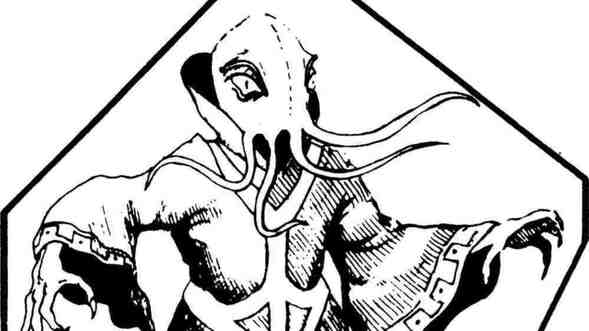
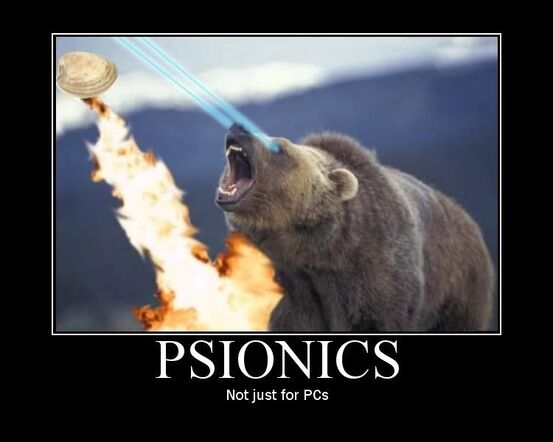
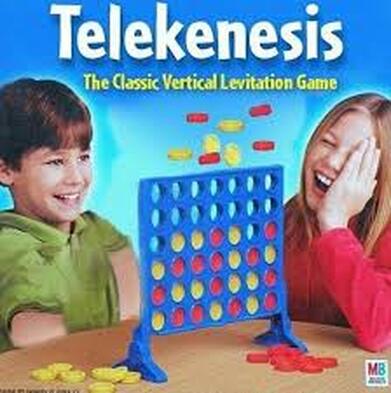
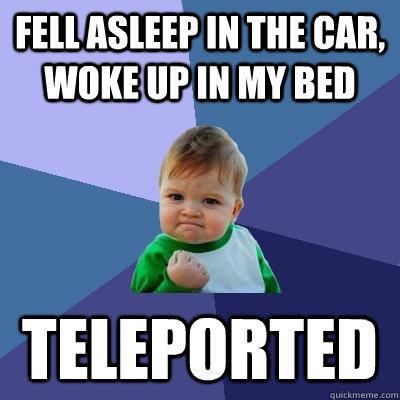
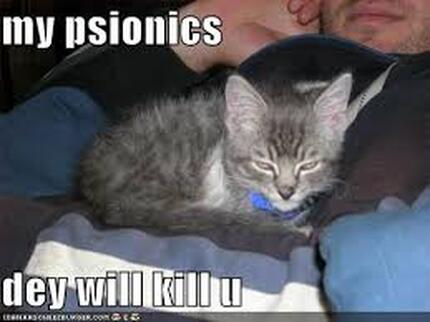
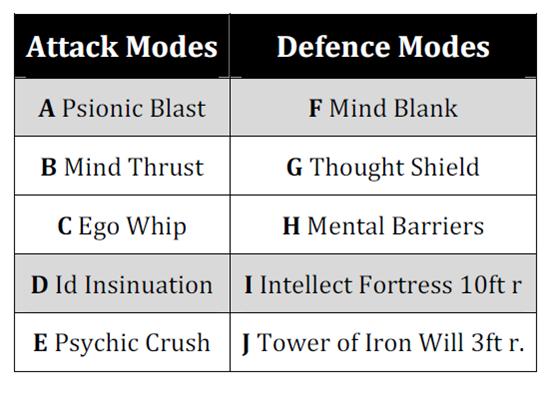
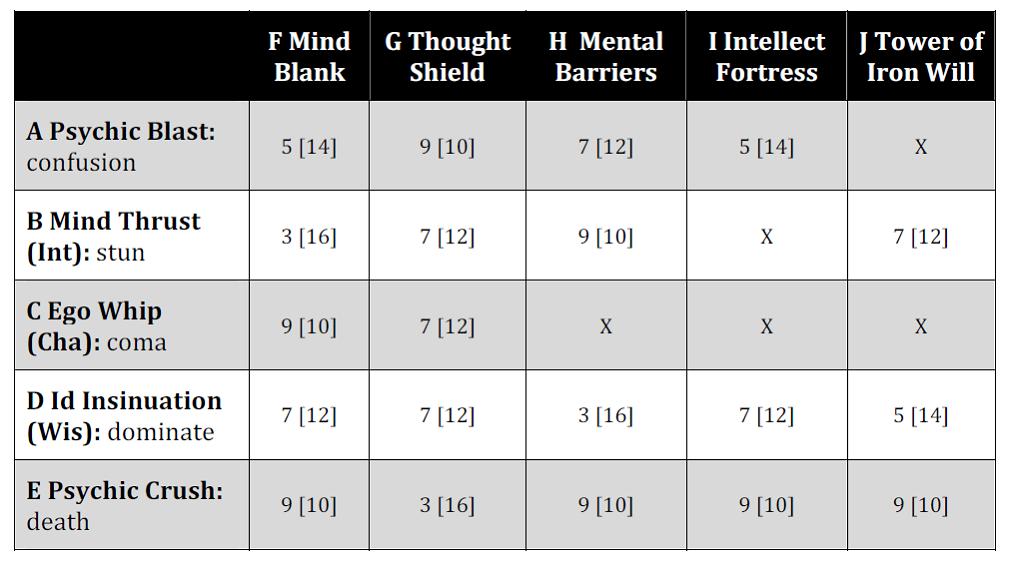
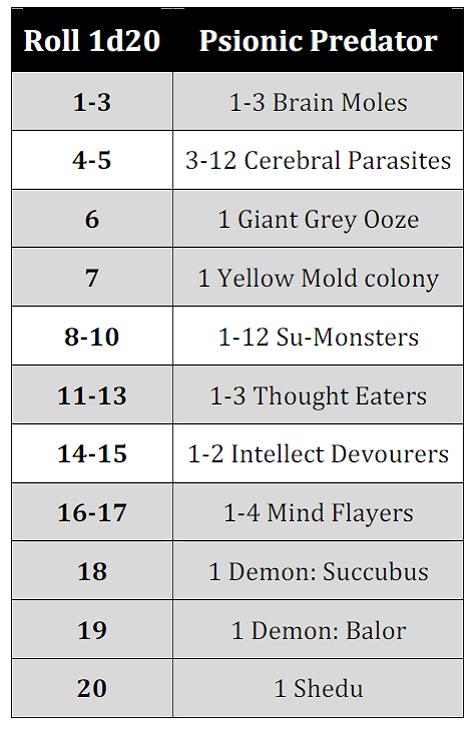
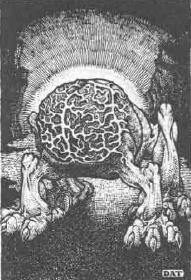
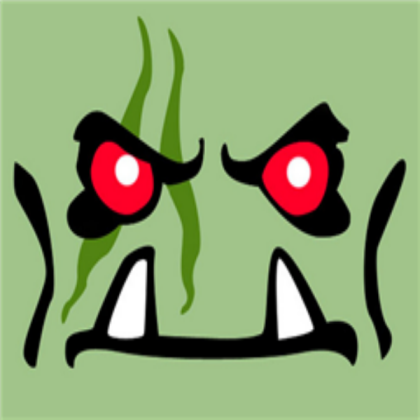
 RSS Feed
RSS Feed
